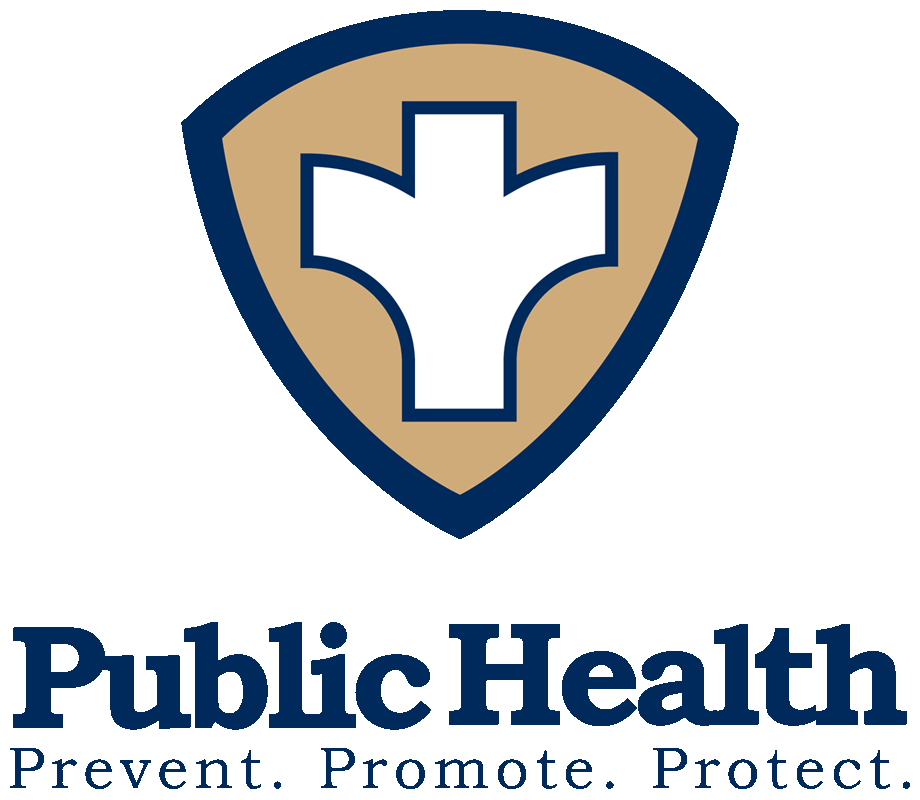COVID Team: A "Front Row" Seat to the Pandemic
COVID Team: A "Front Row" Seat to the Pandemic
Equipo COVID: un asiento de "primera fila" para la pandemia
North Central Public Health District’s COVID-19 team has had a “front row” seat, as one team member put it, to seeing how the virus behaves in people -- and how people behave in response.
Standing, from left, are COVID team members, Sirisha Botta, Vikas Reddy and Bryan Frey. Seated are Mira Craig and Avery Cardosi.
About 3,500 people in NCPHD’s service area of Wasco, Sherman and Gilliam counties have gotten COVID-19, and the COVID team has talked to nearly all of them, and often their close contacts as well.
Team member Maria Acevedo has done case investigations and contact tracing for over a year. “You get to see the real stories. I feel like we get the front row on how COVID acts.”
Some people never get symptoms and don’t even believe they are positive, she said. But another particular case has stuck with her. A COVID-positive woman was too sick to talk with her one Thursday, so Acevedo talked to one of the woman’s children about available services. When Acevedo called back the following Monday to check in, she learned the woman had died.
The vast majority of people they talk to are polite and want to do the right thing in terms of isolating themselves and letting any contacts know that they’ve been exposed.
But every team member has been yelled at, cussed at, and hung up on, said team member Mina Craig. “You learn to separate it. It’s not us they’re mad at, they’re just mad at what’s going on.”
Some people cry upon getting the news, Craig said. Some get mad. And some call their close contacts right in the health district’s parking lot once they learn they’ve tested positive.
Acevedo has talked to hospitalized people who “sound bad enough to be in there, but I feel like sometimes I talk to people that sound worse, but are home.” COVID “treats people differently. Some worse than others,” she said.
Maria Acevedo
Team member Sirisha Botta has called people who were hospitalized, and they’ve told her they didn’t have the energy to talk.
Some people think team members are medical professionals, but they can’t give medical advice. Botta has had to tell several people who were having difficulty breathing to call their doctor immediately or go to the emergency room.
The interview they do with every positive case takes about 15-20 minutes. Key points are symptom onset, what their symptoms are, and whether they have resources to stay home and isolate 10 days.
Some balk at questions, like their birthdate, their race, or who their close contacts are. Botta said. Others “tell you everything – what they had for lunch. We patiently listen to them.”
Team member Vikas Reddy said vaccinated people who test positive can get “a little salty,” he said. “They say, ‘What was the point of getting the vaccine?’” He tells them vaccines help prevent hospitalizations and death.
Vaccinated people fare much better with COVID than the unvaccinated, and they are much less likely to get COVID in the first place. In Oregon last week, almost 75 percent of all cases were in the unvaccinated.
Acevedo said the majority of breakthrough cases are either asymptomatic or they have light symptoms.
It’s common for unvaccinated people who get COVID to ask about getting the vaccine, Reddy said. “They don’t want it again.”
Katie Burns
The Delta surge that began in August was overwhelming. Acevedo remembered coming to work one day and there were 60 cases to investigate, and just two team members on duty.
One upside of that overwhelming time was that people seemed to take it more seriously, Craig said.
Team member Katie Burns said, “for the most part, people appreciate that someone is checking on them. Of course, at least once a day somebody’s a little grumpy or they don’t understand why we’re calling and that comes out as anger.” But usually people warm up as the call continues.
This far into the pandemic, people who test positive generally know to expect a phone call from the health department, Burns said. People often have heightened emotions, either “really scared or really angry.”
She said, “The people who are thankful and glad I call definitely make it worth it. We don’t get thanked very often, but when we do it’s nice and it does make it a little bit easier.”
(For more information, please visit COVID-19 Vaccine in Oregon, contact North Central Public Health District at (541) 506-2600, visit us on the web at www.ncphd.org or find us on Facebook.)



